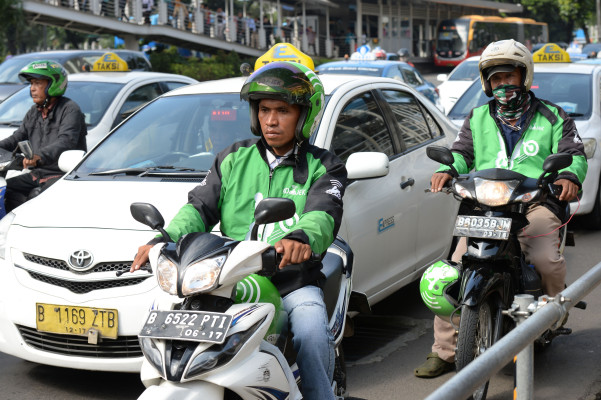
German insurance giant Allianz is following Google and Tencent by backing Go-Jek, the Indonesia-based ride-hailing and local services company valued at over $4.5 billion, after it announced an investment.
The money comes from Allianz X, the firm’s digital investment arm, which confirmed it put in $35 million in what is its first deal in Southeast Asia. The group has previously backed startups like European challenger bank N26 (alongside Tencent), and emerging market micro-insurance service provider Bima.
Allianz participated in an estimated $1.5 billion Go-Jek funding round that includes participation from the likes of Google, Tencent, Chinese e-commerce giant JD.com, China-based delivery service Meituan and others. The round opened last year when Tencent, the $500 billion Chinese firm, made an investment, but we understand that it is now closed at a valuation that exceeds $4.5 billion. Go-Jek has yet to officially announce or confirm the funding, however.
Go-Jek and Allianz have had a relationship for the past two years, with Allianz Indonesia supporting the company by offering health insurance for Go-Jek drivers and their families. The insurance company said it has plans to “increase access to insurance products and services” for Go-Jek partners and customers. That makes sense given that Go-Jek is moving into financial services products in Indonesia.
“Go-Jek has demonstrated a track record of success within the transportation, logistics and payment sectors and we look forward to supporting their continued growth,” Nazim Cetin, CEO of Allianz X, said in a statement.
Hot on the heels of Grab’s acquisition of Uber Southeast Asia, Go-Jek is working to move into four new marks during April. TechCrunch understands that it has hired country management and operational teams in the Philippines, Thailand and Vietnam, while it is also looking into options in Singapore.
Go-Jek started out operating a bike taxi on-demand service, but it has since added taxi and private car options, a mobile payment business and local services on-demand, such as groceries, massages and more. The company is widely-heralded as the market leader in Indonesia, which is Southeast Asia’s largest economy and the world’s fourth biggest country with a population of over 260 million.
Indonesia is expected to be the main growth driver for Southeast Asia’s ride-hailing industry, which is forecast to see revenue jump from $5 billion in 2017 to over $20 billion in 2025, according to a recent report from Google and Singapore-based fund Temasek.


